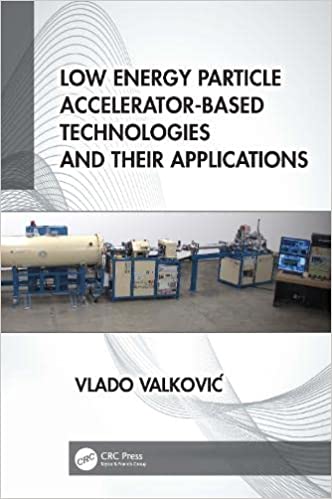
English | 2022 | ISBN: 036745632X, 978-0367456320 | 391 pages | True PDF | 30.67 MB
Low Energy Particle Accelerator-Based Technologies and Their Applications describes types of low energy accelerators, presents some of the main manufacturers, illustrates some of the accelerator laboratories around the globe and shows examples of successful transfers of accelerators to needed laboratories.
Key Features:
Presents new trends and the state of the art in a field that's growing
Provides an overview of numerous applications of such accelerators in medicine, industry, earth sciences, nuclear non-proliferation and oil
Fills a gap, with the author drawing on his own experiences with transporting such relatively large machines from one lab to the other that require a tremendous amount of planning, technical and engineering efforts
This is an essential reference for advanced students as well as for physicists, engineers and practitioners in accelerator science.
About the Author
Dr. Vladivoj (Vlado) Valkovic, a retired professor of physics, is a fellow of the American Physical Society and Institute of Physics (London). He has authored 22 books (from Trace Elements , Taylor & Francis, 1975, to Radioactivity in the Environment , Elsevier, 1st Edition 2001, 2nd Edition 2019), and more than 400 scientific and technical papers in the research areas of nuclear physics, applications of nuclear techniques to trace element analysis in biology, medicine and environmental research. He has lifelong experience in the study of nuclear reactions induced by 14 MeV neutrons. This research has been done through coordination and works on many national and international projects, including US-Croatia bilateral, NATO, IAEA, EU-FP5, FP6 and FP7 projects.
Cover photo credit: 3SDH 1 MV Pelletron system with RF source and analysis endstation designed with the intended purpose of aiding in fusion research. It is capable of Ion Beam Analysis (IBA) techniques such as RBS, ERD, PIXE and NRA. Further detectors could be added to the endstation to allow for other techniques. Installed in Japan in 2014. Courtesy of National Electrostatics Corp.
Links are Interchangeable - No Password - Single Extraction



